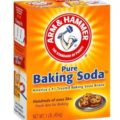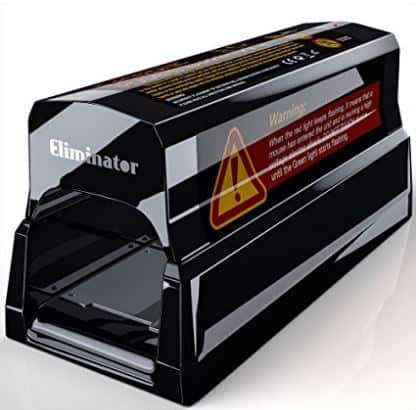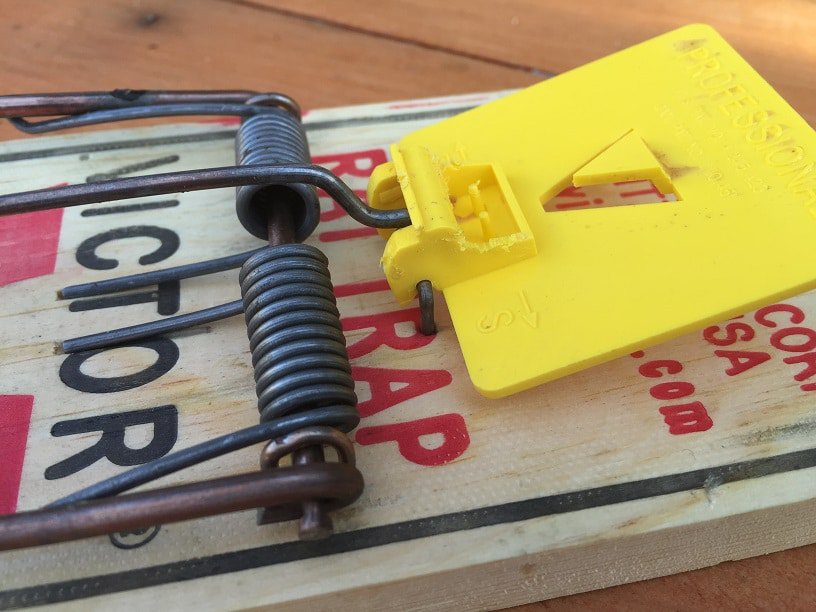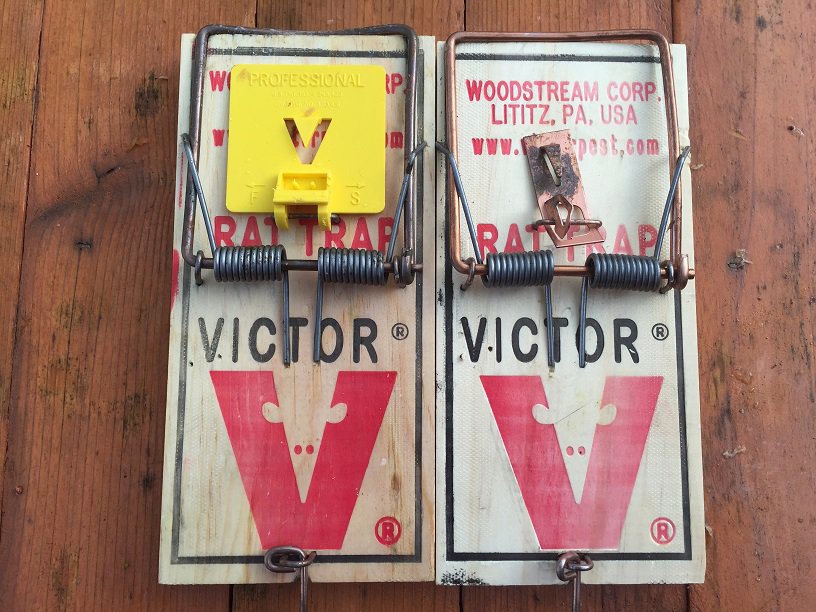Table of Contents
If you are dealing with a large rat infestation, then using some form of rat poison makes sense. While the use of poisons can be problematic, when not properly used, they are the best solution for killing off a significant rat population. Before you start putting out baits though, there are two questions that you need to ask. The first question is, “Is rat poison the right answer for your particular problem?” and “How long will it take the rat poison to work?
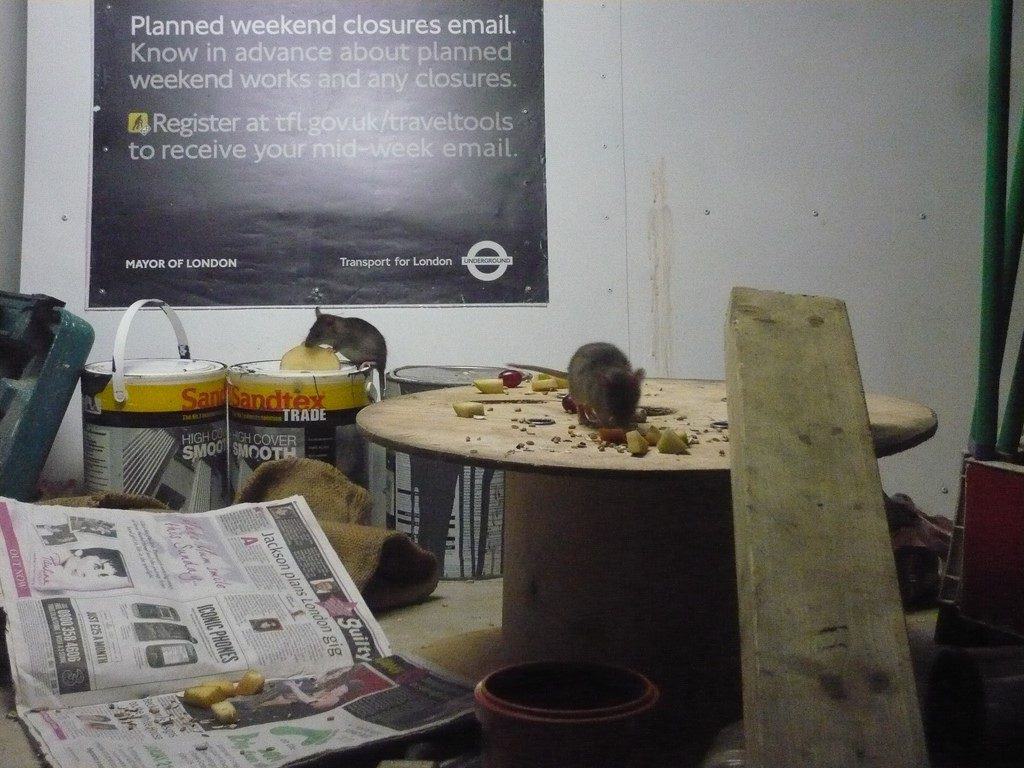
Photo by Ricardo Licensed Under CC BY 2.0
Rat poisons work through several different mechanisms depending upon the ingredients used in the formulation. How fast the poison works is determined by which type of poison is used and how long it takes the rats to accept the bait as a viable food source. Under ideal conditions, the poison can start killing rats within one day. However, in order to completely eradicate the population, you should expect the process to take between four days and one week.
How Long Does Rat Poison Take to Kill a Rat? How Does the Poison Work?
There are five ways that rat poisons work to kill rats, and the speed at which they are effective varies.
- Death From Internal Bleeding (3 to 7 days)
- Death From Heart Attack (3 to 4 days)
- Death From Lung Failure (12 hours to 2 days)
- Death From Central Nervous System Failure (14 hours to 4 days)
- Death From Dehydration (3 to 5 days)
Internal Bleeding
These are the most common types of poison, and they are highly effective in killing rats. These poisons are essentially blood thinners (anticoagulants) that mess up the Vitamin K levels and prevent clotting. After a lethal dose is ingested, it takes about 3 to 4 days for the internal bleeding to kill the rodent.
There are two families of poison in this class: Generation 1 and Generation 2.
Generation 1 poisons (warfarin, chlorophacinone, diphacinone) work best when the toxic dose is built up gradually over 2 to 3 nights of feeding. This means that it could take up to three nights for enough poison to be ingested and another four days for the poison to kill the rat. This gives a total time to kill of seven days.
Generation 2 poisons (brodifacoum, bromadiolone, difenacoum, difethialone) can build up a toxic dose in a single night feeding which means the total kill time will be about four days.
Heart Attack
There is only one rat poison that falls into this category, cholecalciferol.
Cholecalciferol is a form of vitamin D3. It might seem strange that a vitamin can kill a rat, but the drug actually raises the calcium level in the blood to the point that rats have a heart attack!
A rat can eat a lethal dose of this poison in a single feeding and will die 3-4 days after ingesting. An interesting note about this poison is that, unlike most of the other poisons on this list, in a controlled study where dogs were fed a diet of rats that had been killed by this poison, none of the dogs got sick.
Lung Failure
There are multiple poisons that fall into this category but the ONLY one you should ever use is zinc phosphide.
Zinc phosphide is not particularly toxic itself. However, as soon as the compound comes into contact with the acid in a rat’s stomach it breaks down and releases a HIGHLY toxic gas called phosphine.
Phosphine breaks down the cells inside the rat’s body. The gas is non-specific in how it destroys the rat’s internal organs, but usually, the rats die from pulmonary edema when the lungs start to break down.
The speed at which this poison kills rats depends upon how much was eaten AND what else was in the rat’s stomach. The important step is the stomach acid decomposing the bait. Death will typically occur within 12 to 24 hours.
Central Nervous System Failure
There is only one poison that falls into this category, bromethalin.
The mechanism by which bromethalin kills rats is complicated. A rough summary is that bromethalin interrupts the rat’s ATP cycle, making it unable to provide energy for its body. Bromethalin is a single-dose poison that can kill between 14 hours and four days.
Dehydration
There is a relatively new product on the market called RatX that is effective at killing rats but technically is not a poison.
The active ingredients in RatX are corn gluten and salt. When the bait is ingested, the corn gluten swells inside the rat’s stomach and prevents the rat’s body from absorbing water. The salt aids in the process.
The rat will die from dehydration in three to four days. The makers of RatX claim that the bait does such a great job of dehydrating the rat that the decomposing body does not create any odors.
Why Not Use The Fastest Acting Poison?
Since some poisons act faster than others you might be wondering why everyone doesn’t use the one that kills rats the quickest.
The primary reason is that in order for the poison to work it must first be eaten by the rat. This means that a critical part is being able to formulate the poison into a pellet or block that a rat will want to eat. The pest control industry has had the greatest success in making palatable baits with anticoagulant poisons.
A secondary reason is safety. Second Generation anticoagulants work faster than First Generation, but they are so toxic that they pose a serious threat for secondary poisoning. Secondary poisoning happens when a rat dies from the poison, and then your dog eats the dead rat. There is still enough poison in the rat that your dog gets poisoned.
Because of the increased risks associated with Second Generation poisons, they are only packaged for sale to the commercial pest control market and not to retail consumers.
(Note: Just because Second Generation poisons are not packaged for retail consumers does not mean that retail consumers cannot buy these products. You can find these products on Amazon packaged in 10-pound containers, which are way more than a household would need but would be an appropriate amount for a pest control company.)
Are Rat Poison or Rat Baits The Right Option For Your Problem?
Poisons are not the right answer for every rat infestation problem. For one, the time how long does it take for rat poison to work depends on the rat poison you’ll use.
If you are only dealing with a few rats, then trapping is a much faster way of dealing with the problem. A lot of folks want to use poison instead of traps because those massive snap traps for rats can be scary and dangerous. They also do not want to have to clean up the bloody mess that happens after the rat is caught.
If this sounds like you, then let me suggest you buy a few rat zappers. A rat zapper is a trap that electrocutes rats. The benefits of a rat zapper are that they kill rats instantly (no suffering), and there is no real mess to clean up. You simply pick up the rat zapper (with the dead rat inside, take it over to the trash and let the corpse slide out of the trap.
Another instance where poison is not really a good idea is if you have rats in your attic. Yes, the poison will work for killing attic rats, but then you are going to have an attic full of decomposing rat corpses. The smell will be….memorable.
Obviously, you do not want to use any poisons if they will be accessible to pets or children. The best way to use poisons if pets or children are present is with a Tier 1 Bait Station.
Lastly, the use of poisons is going to be ineffective in situations where the rats already have plentiful food choices to feed on. If you have pails of open garbage, bowls of dog food, or sacks of chicken feed laying around then the rats are going to be eating that stuff instead of your baits.

